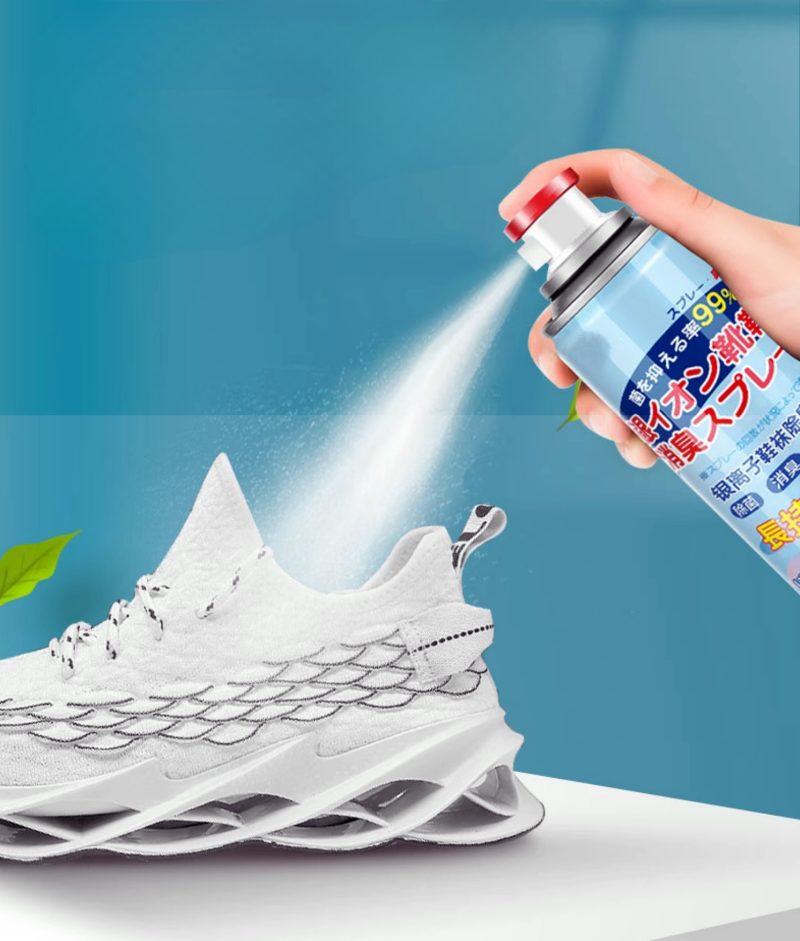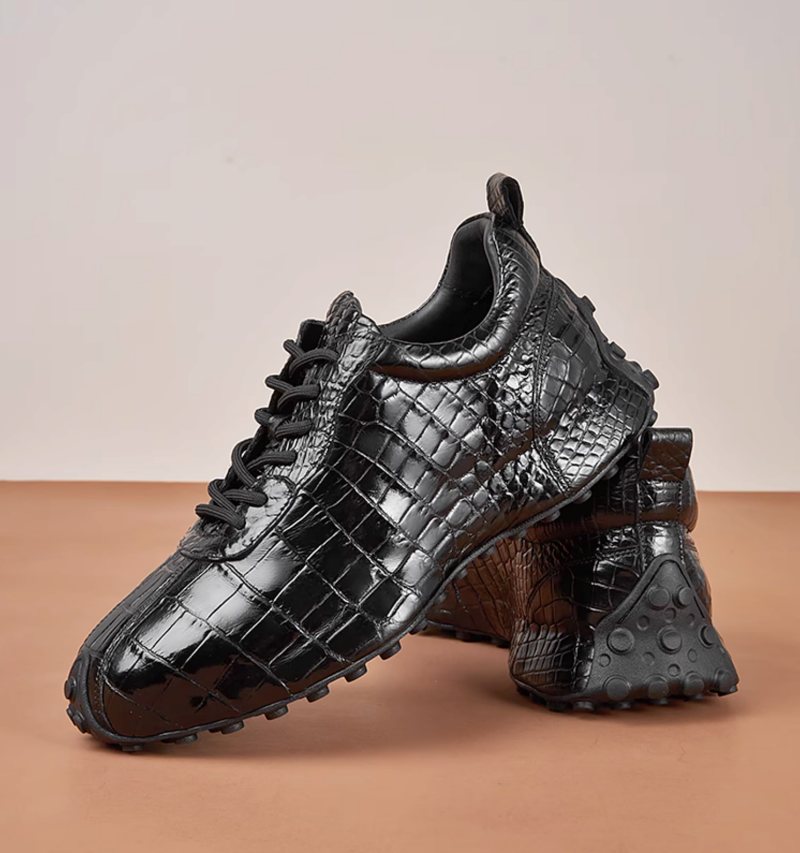How To Prevent Shoes from Smelling?
People usually feel wearing shoes without socks during summer gives them freedom. However, this freedom usually brings a smelly shoe problem. Smelly feet are an unwanted fact of life that most people want to avoid. Our sweat glands work to keep our skin hydrated. This extra moisture causes a pungent smell, which can stay in our shoes for longer. You can prevent your favorite shoes from smelling in different ways. 
Best ways to prevent shoes from smelling
So, here we go:
1. Use baking soda as an odor absorber
Baking soda is a powerful odor absorber which is usually available in our pantries. Fortunately, you can use baking soda to deodorize your shoes, too. This great natural ingredient can absorb moisture and odor. That’s why it is the handiest tool to freshen up your smelly shoes. Take half a cup of cornstarch and baking soda and mix these. Then, use a spoon or funnel and transfer this mixture into cotton socks. Divide the mixture into two equal parts. Place these baking soda-filled socks into your shoes. It would be better to let these sit there for about 24 hours. Shake your shoes well to let the mixture into your shoes’ toe area. You can empty the shoes the very next day to have odor-free shoes.
2. Use vinegar to neutralize bacteria.
Another effective way to prevent shoes from smelling is by using vinegar, but you should not use it very often. It is because using vinegar to neutralize bacteria in your shoes can increase the risk of damaging its material. You can follow the procedure below to use vinegar to neutralize bacteria:
- Mix white vinegar with water in 1:1.
- Pour the mixture into a spray bottle.
- Spray this mixture inside your shoes once you take them off.
- You must place your shoes in a properly ventilated place to let them air dry completely. You can also use a circulating fan if you want to accelerate the shoe drying process.
It is always better not to spray it on the outer layer of your shoes. Vinegar can lead to discoloration on some shoe materials.
3. Wash your shoes
You can wash most of the fabric-based shoes with regular detergent. It would be better to read the instructions from the manufacturer to choose between handwash or machine-wash. It would be better to remove the insoles and laces of your shoes before washing them. Then dip the shoes in laundry detergent and sanitizer for a while. The practice will help you to kill bacteria inside the shoes and have cleaned ones in the end. If you want to wash your shoes in machine, then put these in a mesh laundry bag before throwing them in the washer. Also, run the washer in gentle cycle. After completing the shoe washing process, let them air dry properly. Wearing wet shoes can worsen the problem of smelling shoes.
4. Get benefits from the antifungal properties of essential oils
Various essential oils contain antifungal properties. Due to this, essential oils can effectively help in deodorizing your shoes and killing spores. For this, you should:
- Take a few drops of any essential oil, and it can be cedarwood, tea tree, or clove.
- Then, mix this essential oil with water and put the mixture in a spray bottle.
- Take an old cloth and cover your shoes’ exterior. The practice will let you protect your shoes from any stain that the essential oil mixture may cause on your shoes.
- Spray the mixture inside and let it dry completely before using it again.
5. Use shoe disinfectants
It is easier to find shoe disinfectant sprays in the market. You can also invest in any good quality shoe disinfectant, preferably phenolic-based, to protect your shoes from smelling. The procedure to use shoe disinfectant is quite simple. You can also read the instructions mentioned on the bottle for more effective use. Otherwise, carefully spray the disinfectant inside your shoes. Even though overspraying isn’t a good option here, you should still ensure that the interior surfaces of your shoes are completely wet. Let your shoes dry overnight, and then you are good to go with these shoes.
6. Store your shoes correctly.
Cold can inhibit the growth of fungi and bacteria in your shoes. Therefore, it is always better to store your shoes in a dry and cool environment. You should choose a dry room for shoe storage with proper airflow. It will prevent the growth of bacteria in your shoes. Some people consider freezing their shoes as a dramatic tactic to prevent their shoes from smelling. This technique can degrade the adhesives and glue of your shoes, which will ultimately reduce their lifespan. So, it’s always better to avoid freezing your shoes.
7. Add citrus peel to your shoes.
Citrus fruits’ peel work as a great solution to add a fruity scent to your shoes. You can use the peels of lemon, orange, or any other citrus fruit of your choice. Then, put these peel-off pieces into your shoes directly. Let them stay on the footbed of your shoes overnight to get fresh-smelling shoes the next day. 
Here are some additional tips to keep in mind.
Here are some additional yet quick tips that you must keep in mind to prevent your shoes from smelling.
- Use your footwear alternatively. You should avoid wearing the same shoes for 2 or more days consecutively. Wearing shoes over and over again that take in sweat without letting them dry can cause bad odors.
- Wash your feet regularly and always change your socks daily to prevent your shoes from smelling.
- Just like your underarms, you must apply a combination of deodorant to your feet. Using foot deodorants can help block your pores, fight bacteria, and discourage sweat to minimize smells.
- If you are more prone to smelly feet, then it is always better to invest in odor-minimizing insoles. These are great options because they feature a breathable and purposeful design for improved air circulation and odor absorption. Using such insoles can certainly help you to prevent shoes from smelling.
Final Thoughts
So, here we have brought multiple ways to prevent your shoes from smelling. By practicing these solutions, you can certainly protect your shoes and feet from stinking.
More about shoe care
How to Store Leather Shoes to Prevent Mold: Essential Tips and Tricks


